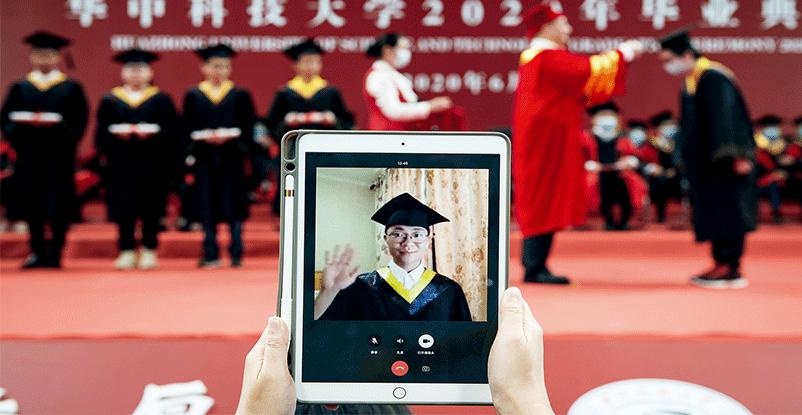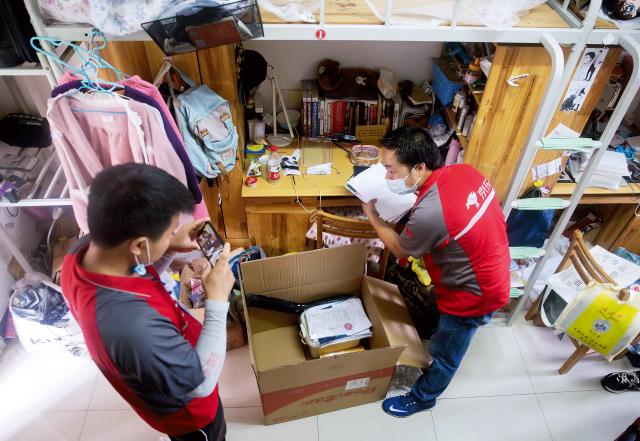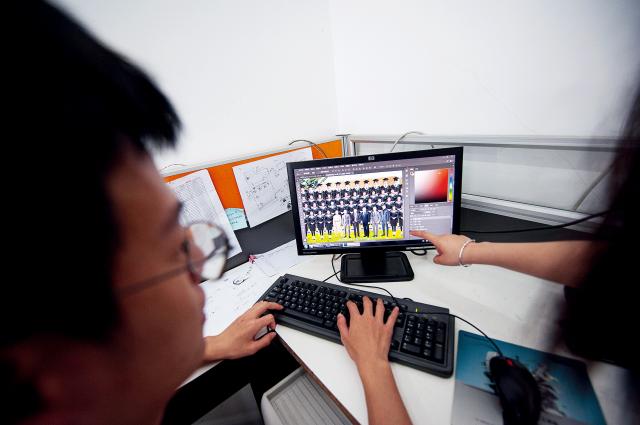Wang Feng (pseudonym) works in HR for a listed real estate company. The company usually begins its annual spring recruitment program after Chinese New Year. For 2020, they put it on hold.
The company would recruit over 500 college graduates on average annually. Wang told our reporter that recruiting college graduates is a way for the company to expand its talent pool. But since the Covid-19 outbreak, the company has had to downsize.
According to the National Bureau of Statistics, home sales in January and February dropped by 35.9 percent year-on-year, and real estate companies are facing growing financial pressure. Wang said his company expects to resume hiring college graduates in late 2020 on a much smaller scale.
The aviation industry was also hit hard. Since early February, the Civil Aviation Administration has halted many routes and international travel also plunged.
Liu Kuo, who works in the job placement department at the Civil Aviation University of China (CAUC), told NewsChina that she is facing unprecedented pressure. “A shared characteristic among domestic aviation colleges is more than 80 percent of students join the workforce directly after graduation,” she said.
Since February, enterprises that regularly recruit the university’s graduates have been quiet. When Liu invited them to attend the spring online job fair, many said they were not hiring.
Sun Ling, director of the college section at Zhaopin, an online recruitment platform, said March is usually the busiest time of year. But in 2020, roughly 30 percent of enterprises listed on the platform said they were not recruiting, while 40 percent are waiting out the pandemic.
“Because of the downward economic pressure and impact of Covid-19, job vacancies for recent graduates dropped by 16.8 percent but the number of job seekers rose by 69.8 percent year-on-year,” he told NewsChina. Government statistics showed that China’s GDP fell 6.8 percent in the first quarter of 2020, the first time since the country’s reform and opening-up started in the late 1970s.
According to a report on the job market for college graduates in the spring of 2020 by Boss Zhipin, the pandemic has battered China’s international trade, causing a drop in vacancies by 43.1 percent year-on-year. The service industry slashed demand by 40 percent and the financial sector more than halved its previous hiring numbers.
“The growing number of graduates coupled with the number of new jobs drying up has made 2020 a tough year for college graduates,” said Dai Liyi, vice president of East China Normal University.
But not all industries have cut back. Government data shows that the internet, manufacturing, energy, chemical engineering and environmental sectors have increased demand.
Bytedance, the parent company of TikTok, announced in February that it would open 6,000 vacancies to college graduates. “Our talent demand doubled that of 2019 alongside the rapid growth of the company,” a senior HR manager with Bytedance told NewsChina on condition of anonymity. As of early June, Bytedance sent more than 3,500 offers to fresh college grads.
According to a report on employment trends during the epidemic by job-hunting website, Liepin, new jobs in the first quarter of 2020 dropped 28.76 percent year-on-year. It also showed that companies involved in “new infrastructure projects” - featuring AI, 5G, the industrial internet and the Internet of Things - increased hiring in the first quarter by 43 percent year-on-year.

 Old Version
Old Version

